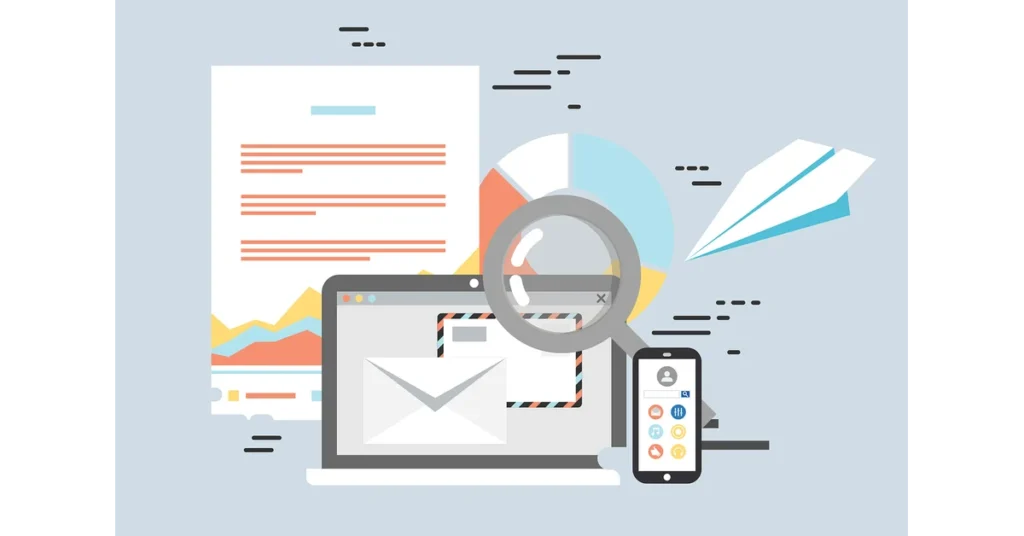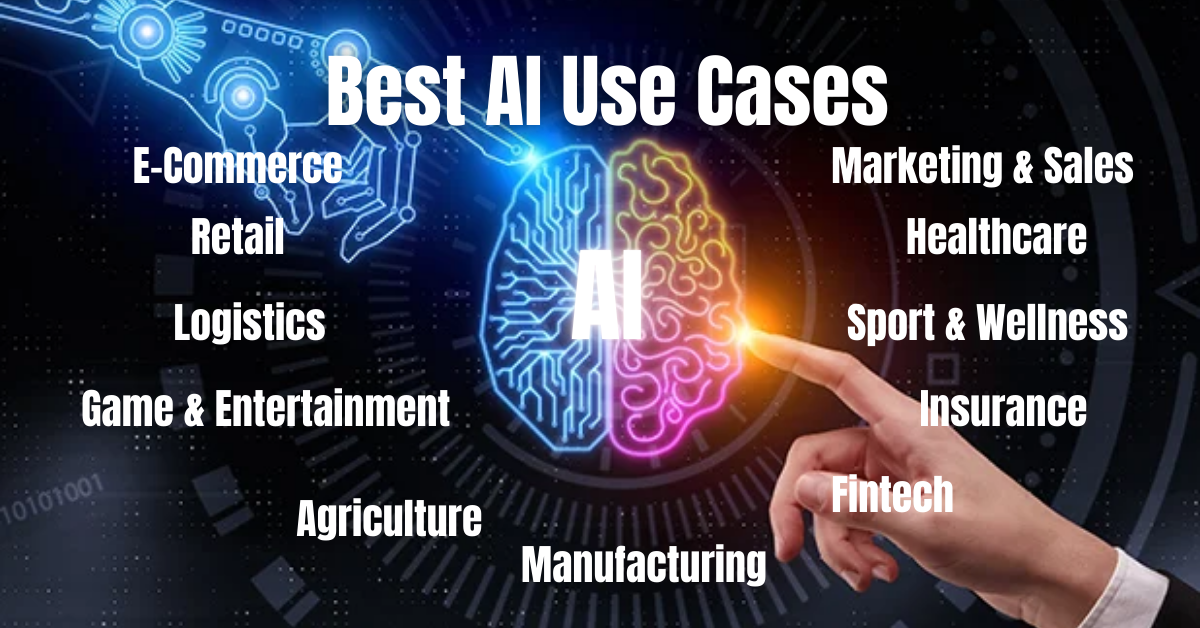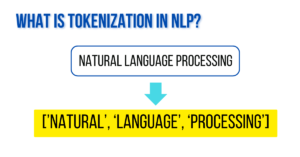Today I bring something new, a collaboration with a AI consulting company.
The information I bring today is from Datamango, a company that helps businesses figure out and implement the best AI use cases in their operations. Along with this, Datamango offers Business Analytics services, where they help you make data-driven decisions.
Some time ago, I connected with Shreyas, the founder of Datamango, and we wanted to let people know more about what AI can do!
So feel free to check Shreyas’ LinkedIn profile and Datamango website. So, now the Best AI Use Cases!
Introduction – Best AI Use Cases
Artificial Intelligence (AI) is changing the way businesses operate. It can automate repetitive tasks, analyze huge amounts of data, and help make smarter decisions. AI can benefit any business, whether big or small, by saving time and reducing costs. It can also provide better customer experiences and improve internal processes.
But how do you know which AI solutions are best for your business? This guide will walk you through the best AI use cases that can have a real impact on your business and show you how to start implementing them.
For more info on AI for Customer Support and how it can improve your business, check this guide.
Key Takeaways – Best AI Use Cases
- AI helps businesses make better decisions by analyzing large amounts of data quickly.
- AI can automate tasks like answering customer questions or detecting fraud.
- AI predicts future trends, helping companies plan and prepare.
- AI improves customer service through chatbots that respond instantly.
- AI reduces costs by helping businesses avoid mistakes and waste.
Table of Contents
AI in Marketing: Helping You Target the Right Audience
AI can make marketing much easier and more effective. Instead of guessing who might be interested in your products, AI can analyze your customer data and find out exactly who you should be targeting.
Customer Segmentation
One major use case is customer segmentation. This means dividing your customers into groups based on their behavior, preferences, and needs. AI helps you create highly targeted marketing campaigns that are much more likely to succeed. Instead of sending the same message to everyone, AI allows you to tailor your content to different groups, increasing engagement and conversion rates.
Predicting Sales
AI can also predict sales trends. If you know when your customers are most likely to buy, you can plan your promotions and inventory accordingly. For example, if AI identifies that your customers typically buy more during certain holidays or seasons, you can adjust your stock levels and promotional efforts to match these trends. This means no more over-ordering stock or running out of products unexpectedly, saving your business time and money.
Automating Content Creation
AI tools can even help with content creation. Even if it is writing blog posts, social media updates, or product descriptions, AI saves you time and effort while ensuring that your content resonates with your audience. Some tools can even generate high-quality copy based on keywords or topics, helping you produce more content in less time without sacrificing quality. This lets you focus on the bigger picture while AI handles the repetitive tasks.

AI in Healthcare: Making Patient Care Better
AI is a game changer in healthcare, helping doctors and nurses deliver better care to their patients.
Diagnosing Illnesses
AI can help doctors diagnose illnesses faster and more accurately. For example, AI image recognition software can examine medical images (like X-rays or MRIs) and detect problems that might be missed by the human eye. AI systems have already been used in several medical trials and studies, showing higher accuracy in detecting conditions like cancer, fractures, and even some genetic disorders. This reduces the risk of human error and speeds up diagnosis, allowing patients to start treatment earlier.
Virtual Assistants in Healthcare
Healthcare providers also use virtual assistants to help patients with things like booking appointments or answering common health questions. Virtual assistants can handle tasks like reminding patients to take medication, answering questions about symptoms, or providing basic care instructions. This frees up medical staff to focus on more critical tasks, improving overall efficiency in healthcare settings. AI-based assistants can also help reduce the workload of administrative staff, saving time and resources.
Predicting Treatment Success
AI can analyze data from past treatments to predict which ones are most likely to work for a particular patient. This helps doctors choose the best treatment options, improving patient outcomes. For example, if a patient has a certain type of cancer, AI can analyze data from previous cases to recommend the most effective treatment plan. This personalized approach increases the chances of successful treatment and reduces the likelihood of trial-and-error methods that can be time-consuming and costly.
For more info, check this guide on 17 Surprising Ways Chatbots in Healthcare Are Revolutionizing Patient Care

AI in E-commerce: Boosting Your Online Sales
If you run an online store, AI can help you sell more and provide a better shopping experience for your customers.
Personalized Recommendations
One of the most powerful tools in e-commerce is personalized recommendations. AI can track what your customers are browsing, what they’ve bought in the past, and what others like them are buying. Then it suggests products they’re most likely to be interested in, making it easier for you to close the sale. These recommendations can appear as pop-ups on your website, in emails, or even as personalized ads. This leads to higher conversion rates and improved customer satisfaction.
Visual Search
Another cool feature is visual search. This lets customers upload a photo and find similar products in your store. For example, if someone sees a pair of shoes they like online, they can upload a picture, and AI will show them similar products available in your store. It’s a simple way to make shopping easier and more fun for your customers. This feature has been increasingly adopted by fashion and home décor businesses, allowing customers to find products more efficiently without browsing through endless categories.
AI Chatbots
AI chatbots can handle customer questions, process orders, and provide support 24/7. This means that no matter when a customer visits your site, they can always get the help they need—without you having to hire extra staff. AI chatbots are also becoming smarter, learning from each interaction to provide better responses over time. Whether it’s answering common product questions or helping customers troubleshoot, chatbots make customer service faster and more efficient.
Check these 12 Best Chatbots For Customer Service that Can Boost Productivity By 30%.

AI in Finance: Keeping Your Business Safe
In the finance world, AI is used to detect fraud, improve customer service, and even manage investments.
Fraud Detection
AI can spot unusual transactions that might signal fraud. It can analyze large amounts of data in real-time, flagging anything that doesn’t seem right. For example, if AI detects that someone is trying to withdraw large amounts of money from an account at an unusual time or location, it can immediately alert the bank or business to investigate. This helps prevent fraud before it causes significant damage and allows companies to take action quickly.
Credit Scoring
AI also helps with credit scoring. It uses more data than traditional methods, giving a more accurate and fairer assessment of whether someone is creditworthy. AI algorithms can analyze a person’s financial history, spending habits, and even social behavior to make credit decisions. This can improve access to credit for people who may have been unfairly denied in the past due to outdated scoring models.
Automated Financial Advice
With AI, you can offer personalized financial advice to your customers. AI can look at someone’s spending habits, income, and savings goals to suggest the best ways for them to invest or manage their money. AI-powered financial advisors, also known as robo-advisors, are becoming increasingly popular for managing portfolios and giving investment recommendations, especially for those who don’t have access to traditional financial advisors.

AI in Manufacturing: Streamlining Production Processes
Manufacturing businesses can benefit greatly from AI by improving production efficiency and reducing downtime.
Quality Control
AI can monitor production lines and automatically detect defects in products. This ensures that only high-quality items reach your customers, reducing the number of returns and increasing customer satisfaction. AI systems can be trained to recognize visual defects, measure product dimensions, or monitor other factors like temperature and humidity to ensure consistent quality. This minimizes the risk of human error and speeds up the inspection process.
Predictive Maintenance
AI is used to predict when machines will need repairs, preventing costly breakdowns and keeping production lines running smoothly. By analyzing data from sensors installed on machines, AI can identify patterns that signal an impending failure. This allows businesses to schedule maintenance before any actual problems occur, avoiding downtime and saving money on emergency repairs.
Supply Chain Optimization
AI can also help optimize supply chain management by predicting demand, monitoring inventory levels, and automating orders. For example, AI can predict when you’ll run out of stock based on current sales trends and automatically place orders to restock your inventory before you run out. This helps businesses avoid overstocking or understocking products, improving cash flow and reducing storage costs.

AI in Predictive Maintenance: Keeping Equipment Running Smoothly
In industries that rely heavily on machinery, like manufacturing or transportation, AI plays a crucial role in keeping equipment running without interruptions.
Predicting Failures
By monitoring machines, AI can predict when they’re likely to fail. This lets you schedule maintenance at the right time, avoiding unexpected shutdowns and saving you a lot of money. For instance, sensors installed on machines can collect data such as temperature, vibration, and noise levels, which AI uses to detect abnormalities that may indicate future problems. Predicting failures before they happen can help avoid expensive downtime and extend the life of your equipment.
Optimizing Maintenance
AI also helps with optimizing maintenance schedules. By looking at past maintenance data, it can tell you the best time to service your machines. This avoids unnecessary maintenance, saving both time and resources. Instead of relying on a fixed maintenance schedule, AI allows businesses to maintain equipment only when needed, improving overall efficiency and cutting down on unnecessary repairs.

FAQs – What Are The Best AI Use Cases?
How can AI improve my business?
AI can help by automating tasks, improving customer service, analyzing data to make better decisions, and predicting future trends.
What is an AI chatbot, and how can it help my business?
AI chatbots can handle customer questions and provide support 24/7, saving you time and improving customer service without needing extra staff.
Can small businesses afford AI solutions?
Yes, many AI solutions are affordable and scalable. You can start with simple tools like chatbots or marketing automation and expand as needed.
How does AI help with fraud detection?
AI can analyze transactions in real-time and flag unusual activity, helping businesses catch fraud before it becomes a serious issue.
What industries benefit the most from AI?
Industries like healthcare, finance, retail, and manufacturing benefit significantly from AI, though its applications can be tailored to virtually any sector.
Conclusion – Use of AI in Businesses
By implementing AI, businesses across industries can increase efficiency, improve customer satisfaction, and make better decisions based on real-time data. Whether it’s automating customer service, enhancing your marketing, or predicting machine failures, AI offers real-world solutions that can make your business run smoother and more effectively.
The best AI use cases offer practical benefits that any business can start using today!
Now I have a question. If you have a business, what part of your workflow do you think AI could help you?
You can send me a message through my LinkedIn page. Cheers 🙂





